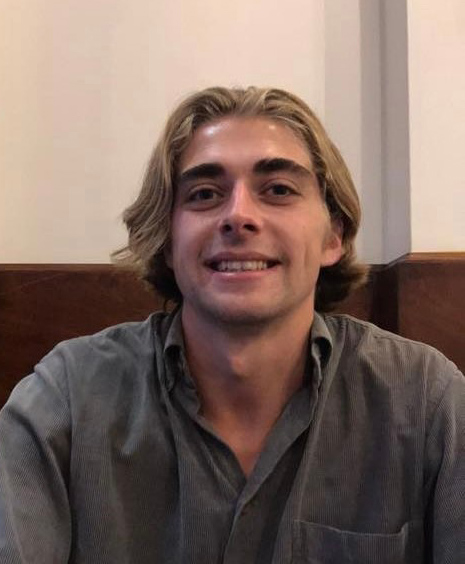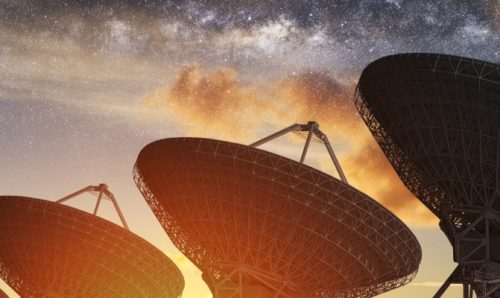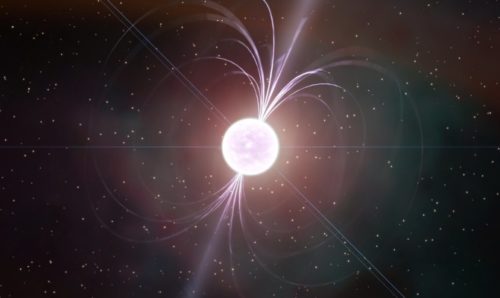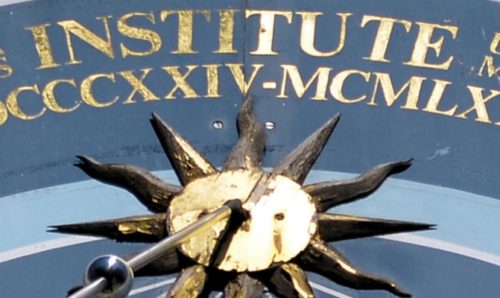My CERN journey: “I almost didn’t take physics for A-level!”
Departments Research impact and institutes 14th December 2022
We end our CERN mini-series by talking to Jonathon Langford, a former undergraduate at the University, who has gone on to complete a PhD while working on the Large Hadron Collider. Johnno graduated in 2017, and was a winner of the Samuel Bright Research Scholarship, for the best performing student throughout the course of his degree. We started by asking him when he first got interested in physics.
I almost didn’t take physics for A-level. I was going to do history instead, so maths, biology, chemistry and history. And then I think it was my dad who said well, look at the subjects you’re doing – it probably makes sense to do physics as well. So I did it and then had excellent teachers at A-level, at college, and eventually liked it enough that I chose it for my degree at Manchester. So yeah, I almost didn’t take this path at all. Could have been a historian instead, I guess.
Why did you choose Manchester?
Obviously it’s a very, very good university for physics. It does get the elite in physics which is nice and some excellent lecturers there, of course, but on the other side, a big part of it was my upbringing, in the sense of I’ve got some family up north. My sister went to Manchester Uni, so I visited her a few times and enjoyed the city a lot. It meant I was only 20 minutes on the train from Wigan so I could go to the football. But yeah, all that stuff combined with it being a very good institute for physics.
Studying at Manchester – was that an enjoyable experience?
Oh, it was great. Yeah. I absolutely loved my time in Manchester. Very fond memories, both of the course itself: very interesting, like I said, some excellent lecturers at Manchester. But then on the other side, the social aspect of living in Manchester is great. So it was a great experience, and like I said, I look back with fond memories.
So at some point during your course, you specialised in particle physics?

Again, somewhat by chance. It was actually at the end of second year; I secured a placement via the DAAD programme. I applied for three different things on the program, and one was particle physics. You had to rank them, and I chose particle physics as the first choice. Another reason was the fact that it was in Munich, at the Max Planck Institute – a place that I wanted to go and it’s a good institute for physics as well. So that was the reason I picked it first and then obviously that led to me then enjoying particle physics, taking the kind of modules that are suitable for particle physics in third and fourth year and led me on this path.
And you’ve recently completed a PhD, is that right?
Yeah, that’s right. It was based on an experiment at CERN. I spent six months out at CERN as a long-term attachment, but the whole time was on the same experiment, analysing the data that comes out of that experiment. My PhD title was ‘measuring the properties of the Higgs boson’. This is a particle that we discovered ten years ago. And then in those ten years, we’ve been able to take more and more data and learn more and more about this particle. So it’s particularly interesting because it’s the particle in our model of particle physics that’s responsible for giving other particles their mass. So before 2012, we had no experimental confirmation that the Higgs Boson existed. We knew things about mass, but we didn’t know why or how. But in 2012, we managed to confirm experimentally both at Atlas and CMS – the experiment I’m working on – that this thing does exist. And since then, we’re learning about how it interacts with all different kinds of particles. And I’m particularly looking in one decay channel that’s the Higgs boson decaying to two photons. So that’s the particle responsible for the propagation of light. So the Higgs boson can decay into two photons. And it’s this channel that we can use to measure the properties of the Higgs boson; things like its mass, how it interacts with and couples to all of the different other particles.
What are the practicalities of living there?
The salary is still your PhD wage, and so I’m paid by Imperial. And you can get paid by funding bodies like STFC (Note: The Science and Technology Facilities Council). And yeah, it was great to live out there, you know, and it’s a very international collaboration, CERN, mostly speaking English, which is of course good if you don’t know French! And so it was never a case of feeling an alien in a different city. It was a very easy life and very enjoyable life.
When it comes to analysing the results of the collisions, it’s not necessarily a question of looking through a very powerful microscope and counting the things you see in front of you, it’s more crunching computer data, is that right?
Yeah, that’s exactly right. So the detectors, you can think of them as like a huge 20 metre by 15 metre by ten metre camera, that’s operating 40 million times a second – it’s quite incredible technology, really. And you have all these different detector technologies, and whatever the different particles moving through, they’ll create some electronic signal, and that’s basically read out in binary – if you like, ones and zeros – and they all feed through into processor farms that eventually filter their way down to people like me, the analysers. And so yeah, it’s a case of crunching through the data rather than looking at these things through a microscope.
Do you get frustrated when you see the kind of science on which you’re working reduced to the tabloidy “they’re going to create a black hole and kill us all,” or does it not bother you?
I find it funny. But ultimately it’s probably quite damaging for the field. I think, you know, you want to have the public on your side not only just because you want interest in the science that you do to potentially inspire scientists coming through, but also funding bodies. You need a lot of good public opinion on your science. So yeah, perhaps if I was higher up in the food chain, then I might find it more frustrating than I do.
What does the future hold for you? Are you going back to CERN?
For now I’m certainly enjoying it and staying in the field. I’m doing a postdoc now at Imperial – I’ve been doing that for a year and it’ll go on for at least another year. And then during this postdoc, I’m still working and still based on an experiment at CERN. And so I’m out there occasionally and still analysing the data that comes from the experiment. Longer term, yeah, I’d love to go back. Whether that’s for two years, five years, whatever. And at the minute I’m enjoying it enough to say that that’s the path I want to follow in life.
If you want to hear the full chat with Johnno, you can listen to the full audio of our interview with him below:
Transcript of the audio discussion with Jonathon Langford (PDF document)
We hope you’ve enjoyed our mini-series about the work our scientists – and former students – are carrying out on the LHC at CERN. Watch this space for more blog posts highlighting the work Manchester people do in the wider worlds of science and engineering.





,Shafeeq Hassan says
Transcript of the audio discussion with Jonathan Langford is interesting,instructive and informative.
It is an inspiration to any aspiring students who wamt to specialize in Particle or Quantum Physics.